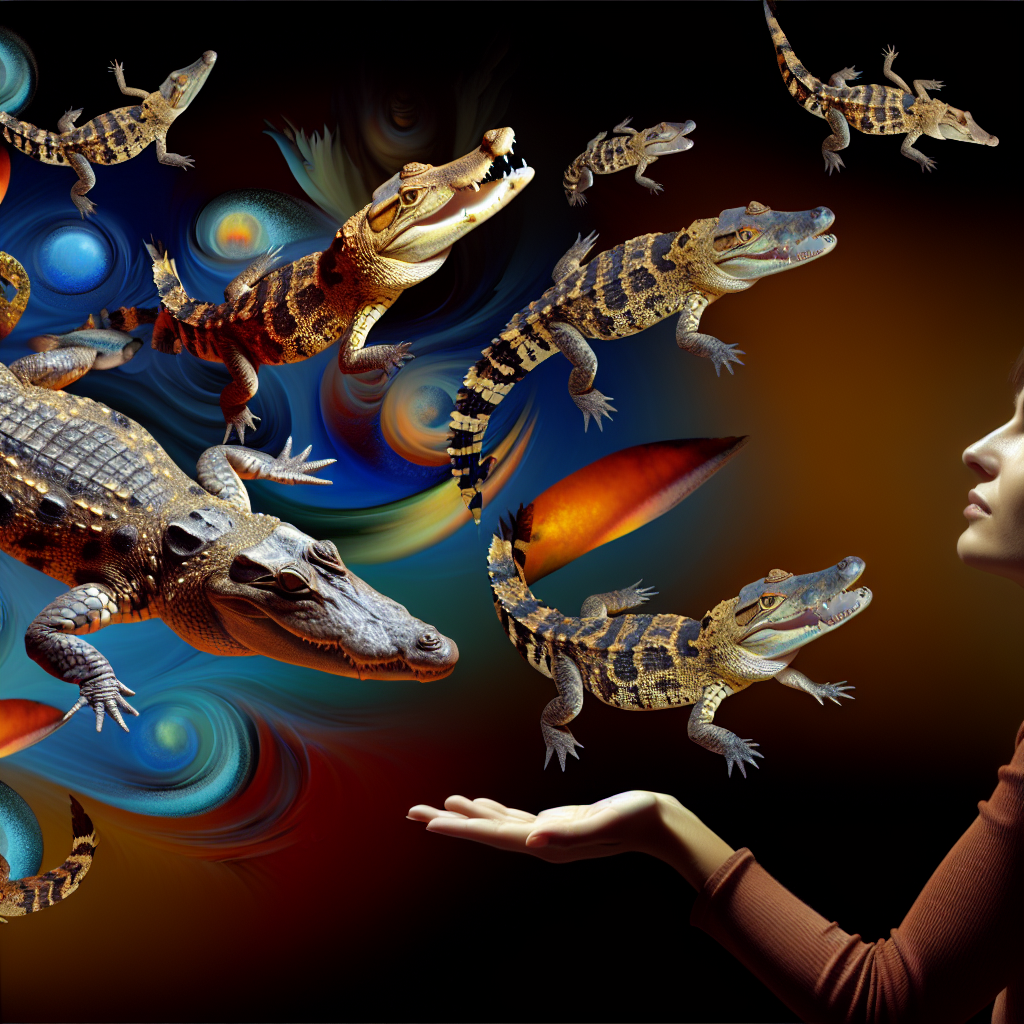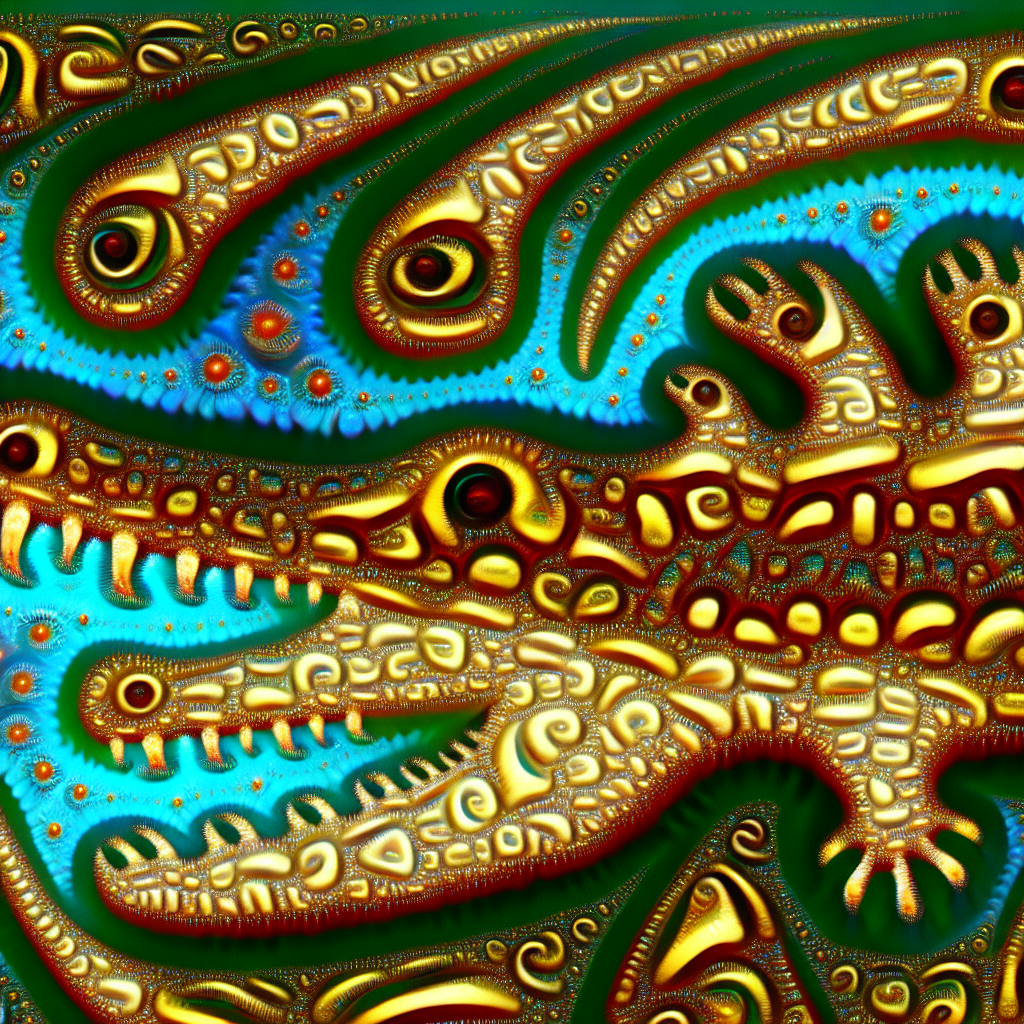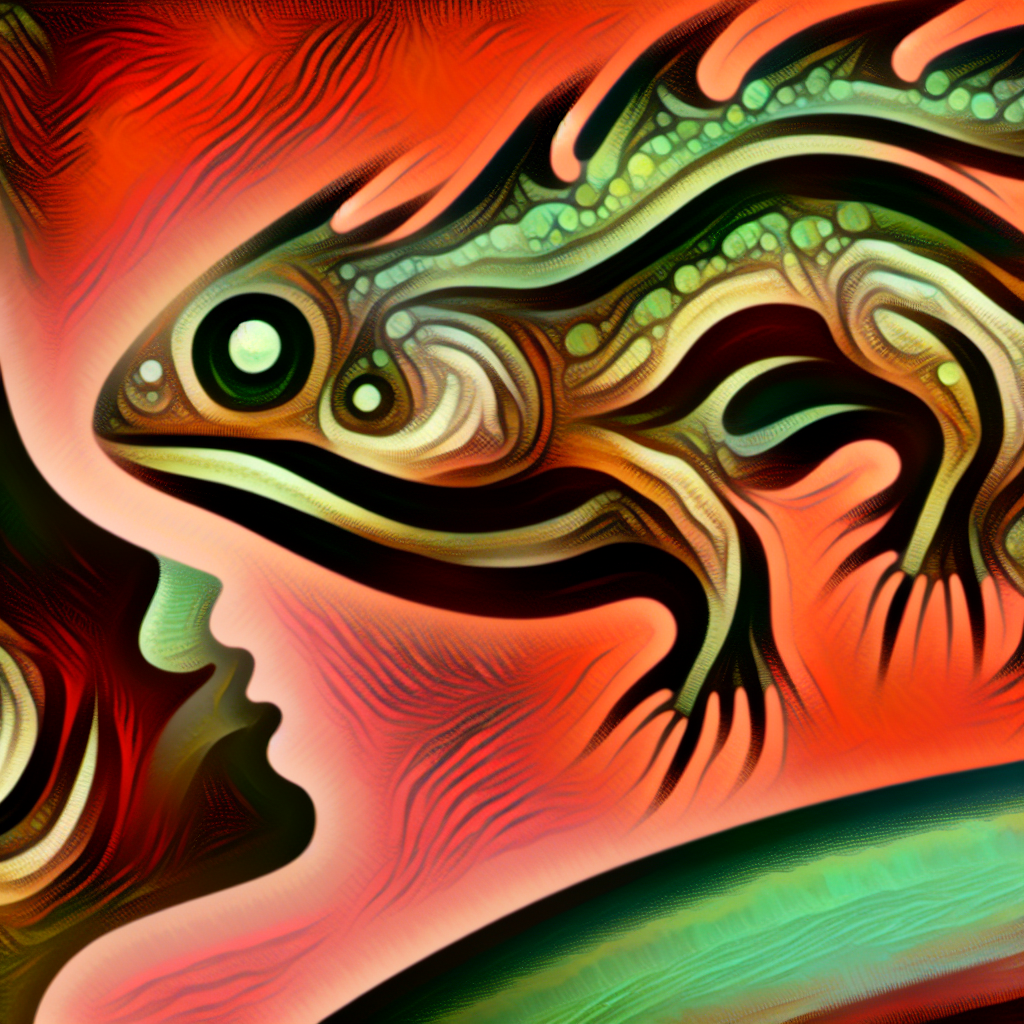
Understanding the Dream of a Crocodile in Captivity: Interpretations and Insights
Awakening to the Meaning of Crocodiles in Captivity Dreams
Dreams featuring crocodiles, particularly ones that depict them in captivity, can evoke a range of emotions and interpretations. Such dreams often reflect our inner struggles, fears, and the complexities of our emotional landscape. In the context of Abrahamic dream interpretations, particularly those rooted in Ibn Sirin's 'The Great Book of Dreams', a crocodile can symbolize deep-seated fears or feelings of being trapped in a situation.
Understanding the nuances of this dream allows for personal growth and emotional clarity, guiding dreamers to a deeper self-reflection and healing. As we explore the different layers of meaning associated with crocodiles in captivity, we will also weave in cultural perspectives and psychological insights to enrich our understanding of this fascinating dream symbol.
Dream Interpretation - Talk to me!

📱 Bestie+ App is Here!
Experience personalized dream interpretations, save your dreams, and share them with your loved ones! Available now on iOS and coming soon on Android.
- Crocodiles in captivity symbolize repressed emotions and aggression.
- Interpreting dreams of crocodiles can lead to personal healing.
- Cultural interpretations vary widely, influencing dream understanding.

Exploring Common Scenarios in Crocodile Dreams
- Seeing a crocodile in a zoo-like environment.
This scenario may suggest a feeling of being observed or judged in your waking life, indicating vulnerability regarding your emotions or decisions.
- Attempting to escape from a crocodile.
A powerful indication of fleeing from real-life challenges, possibly highlighting avoidance of confrontation with your fears or responsibilities.
- A crocodile appearing calm and docile.
Could reflect a false sense of security; while some aspects of life may seem manageable, deeper issues may be lurking beneath the surface.
- Crocodile trapped behind glass.
Symbolizes emotional isolation or barriers caused by external expectations, where the dreamer feels restricted in expressing true feelings.
- Feeding a captive crocodile.
Suggests nurturing or confronting one's fears; it may encourage embracing challenging emotions rather than avoiding them.
- Crocodile breaking free from captivity.
A powerful message of liberation; indicates the potential for personal change and the reclamation of one's authentic self.
- Crocodile silently watching you.
May symbolize feelings of unease or anxiety about being judged, urging the dreamer to face their self-perception.
- Friends surrounding a crocodile in captivity.
Represents social dynamics; may indicate a need to address group pressures or influences in your life.
Navigating the Waters of Crocodile Dreams
In summary, dreaming of a crocodile in captivity offers a rich tapestry of meanings rooted in symbolism and interpretations from multiple cultural and psychological angles. These dreams prompt us to confront our fears and acknowledge hidden aspects of our selves while providing pathways to personal growth and emotional understanding. Through awareness and reflection, we can glean insights that not only resonate in the dreams themselves but also translate into actionable steps in our daily lives.
Embracing the messages of our dreams empowers us to navigate life's complexities with clarity and resilience, ultimately leading to profound self-discovery. As we continue to explore our subconscious narratives, we can cultivate a deeper understanding of our emotional landscapes and take meaningful strides toward healing and authenticity.
Exploring the Psychological Dimensions of Crocodile Dreams
From a psychological standpoint, dreams of crocodiles in captivity can resonate with both Freudian and Jungian theories. Freud emphasized the role of dreams as expressions of repressed desires and internal conflicts. In this context, a crocodile may represent suppressed aggression or sexual tension, with captivity reflecting the constraints society places on these instincts.
Conversely, Jung's perspective invites a closer look at the shadow self — the aspects of our personality that we strive to deny or hide. The crocodile, both powerful and dangerous, embodies the strength of our subconscious, indicating that unresolved issues are yearning for recognition. Dreams that depict crocodiles confined may signal an internal struggle; the dreamer is caught between societal expectations and their true nature.
Analyzing these psychological insights can lead to a better understanding of one's self-concept and emotional health, illuminating paths towards healing and integration.
Scientific Findings on Dream Interpretation
Recent studies in psychology highlight that dreams serve as a rehearsal space for navigating challenges and emotions. Research by the Sleep Foundation suggests that dreams play a vital role in emotional regulation, enabling individuals to process complex feelings. Furthermore, neuroscientific research indicates that the brain remains active during sleep, weaving together memories and feelings, shaping our subconscious messages.
A study published in the journal 'Science' reveals that individuals who engage with their dreams show increased emotional resilience and self-awareness. Thus, the dream of a crocodile in captivity may not only reflect personal fears but could also be a biological mechanism promoting emotional healing and coping strategies. Appreciating these scientific insights can enrich our understanding, providing a holistic view of our nighttime experiences.
Cultural Interpretations of Captive Crocodiles
Crocodiles hold varying significance across cultures, often associated with creation myths, the balance of life and death, and the subconscious. In many Indigenous cultures, the crocodile symbolizes power and protection but can also represent the darker aspects of the self — the shadow that Jung often described. In Western contexts, crocodiles may represent manipulation or a betrayal of trust, considering their predatory nature and capability to disguise their true intentions.
This duality appears prominently in dreams, where captivity might suggest that these predatory instincts are being suppressed due to fear of self-exposure or vulnerability. Understanding these cultural narratives empowers dreamers to extract personalized meanings from their dreams of captivity, guiding them toward self-discovery and healing. By acknowledging cultural influences, one can unveil the multilayered significance of dreams and integrate them into a broader personal and spiritual journey.
Expert Reflections on Crocodile Dreams
Dr. Judith Orloff, a leading psychiatrist and the author of 'The Ecstasy of Surrender,' emphasizes that dreams act as portals to our unconscious. She states, 'Our dreams can reveal the truth about our fears and desires, but it is up to us to interpret them.' This highlights the transformational potential of understanding dreams of crocodiles in captivity. Moreover, cultural anthropologists have noted that such dreams reflect societal tensions — a metaphor for how we often contain aspects of ourselves due to external pressures.
As such, recognizing the implications of these dreams can drive change, encouraging individuals to embrace their authentic selves. This dual perspective showcases the intricate relationship between personal psyche and larger cultural narratives, inviting individuals to embark on their journeys toward introspection and healing.
Uplifting Aspects of Crocodile Captivity Dreams
While dreams of crocodiles in captivity often evoke concern, they also harbor positive meanings. Such dreams can represent a journey towards self-awareness and emotional release. The image of a crocodile being contained can signify that the dreamer is beginning to recognize their fear or anxiety and is on the cusp of confronting it.
This act of acknowledging one’s emotional state is crucial for healing. Furthermore, these dreams may suggest that the dreamer possesses the strength to overcome obstacles and can harness their inner power as they navigate personal challenges. The potential for growth emerges when one recognizes their fears; it can be transformative and lead to significant life changes that align with their true self.
Ultimately, these dreams may foster empowerment as they encourage personal reflection and emotional bravery.
The Symbolism Behind Crocodiles in Captivity
Ibn Sirin's teachings explore the crocodile as a complex symbol, often representing danger, hidden emotions, and power dynamics. Dreaming of a crocodile in captivity may signify feelings of restraint or an inability to express your true self. The image of a crocodile, typically a fierce predator, confined within barriers speaks volumes about our own emotional turmoils — perhaps feelings of being overwhelmed by life's circumstances, leading to emotional suppression.
This dream can also reflect unresolved conflicts, urging the dreamer to confront their fears and acknowledge hidden aspects of their psyche. The juxtaposition of strength and vulnerability in the dream serves as a reminder that while we may feel trapped by external conditions or internal fears, there remains the potential for release and transformation. As such, this dream encourages reflection on areas of life where one might feel confined and prompts a search for freedom and authenticity within oneself.
Cautionary Signs from Crocodile Dreams
On the flip side, dreaming of a crocodile in captivity can carry negative connotations as well. These dreams may serve as warnings of underlying issues that have not been adequately addressed. Feelings of confinement can amplify sensations of anxiety, fear, or helplessness.
It may reflect a situation in the dreamer's life where they feel trapped, either emotionally or relationally, suggesting the need for introspection about controlling influences or toxic environments. Moreover, such dreams could point to the need for the dreamer to confront their repressed anger or resentment before it manifests in potentially harmful ways. Recognizing these warnings can lead to proactive measures, such as embarking on a path of self-discovery, seeking support systems, or even engaging in therapy to address deeper emotional struggles.
Practical Tips for Engaging with Crocodile Dreams
- Reflect on Your Emotions
Take time to journal about your feelings after dreaming of a crocodile in captivity. Consider what aspects of your life feel constrained or suppressed and explore how these emotions manifest throughout your waking life. Writing down your thoughts can provide clarity and help activate your emotional healing process.
- Engage in Self-Exploration
Consider seeking resources such as books or workshops focused on dream interpretation and emotional intelligence. Engaging with these materials may enhance your understanding of not only this dream but your broader emotional and psychological landscape.
- Meditate on Your Dreams
Incorporate meditation into your routine, focusing specifically on the emotions and messages from your crocodile dream. Visualize interactions with the crocodile and contemplate what it represents for you, creating a safe space for emotional processing.

FAQs
- What does dreaming of a crocodile in captivity signify?
Dreams of a crocodile in captivity often symbolize emotional suppression and the need to confront repressed feelings. This type of dream calls for introspection and openness, suggesting that it's time to address the emotions you might be avoiding.
- Are crocodiles in dreams a bad omen?
Not necessarily; while crocodiles can symbolize danger or fear, dreaming of them can also lead to insights into personal strength and resilience. The context of the dream is crucial for understanding its implications.
- How do cultural beliefs influence crocodile dream meanings?
Cultural contexts shape our understanding of symbols. In some cultures, crocodiles may embody power or protection, while in others, they might represent betrayal or hidden dangers. Acknowledging these perspectives enriches dream interpretation.
- What steps can I take to process my dream about a crocodile?
Journaling, engaging in self-reflection, and meditative practices can help you process your dream and its messages. Consider exploring feelings associated with the dream and addressing any underlying fears it may reveal.
- Can dreaming of a crocodile help with personal growth?
Absolutely! Reflecting on crocodile dreams can lead to crucial insights about your emotions and behaviors, ultimately guiding personal growth and transformation.


